Frequently Asked Questions
If your question isn’t answered below, please feel free to get in touch.
What is Coaching?
Coaching is a new concept for some, while others have their own expectations of what coaching is. Here’s how I see it.
-
In its simplest form, coaching is a conversation designed to help you gain a different perspective and succeed at whatever it is you’re focussing on.
The International Coaching Federation (ICF) defines coaching as "partnering with clients in a thought-provoking and creative process that inspires them to maximise their personal and professional potential."
Coaching is a supportive process that will often leave clients feeling lighter, more empowered, clearer in their direction, and more trusting in their abilities.
-
There is a lot of talk, yes.
Mostly from you, the client.
Coaches use a variety of techniques; they listen, notice, and ask powerful questions, at times they may also use exercises, visuals, props, and movement. All designed to get you thinking in a different way, and seeing things from a new perspective.
Coaching is non-advisory. Whenever you’re directed, it inhibits your own creativity and resourcefulness. You don’t get to make new connections in your own brain.
So coaching sits in the space where you have the means to solve your own challenges, even if it really doesn’t feel like it.
-
The lines may appear a little blurry at times, and it's not uncommon for even the most business-focussed coaching conversation to enter into more traditionally therapeutic subject areas (you bring your whole self to work after all), but there are a number of clear distinctions between therapy and coaching.
Firstly, therapists are qualified to diagnose and treat mental illness. Coaches are not.
Secondly, in coaching the client sets the agenda and there is always a client-directed goal; sometimes an overall goal and then a particular aim for each session.
It used to be said that a therapist works with an unwell mind, whereas a coach works with a healthy mind. In reality it’s far less clear cut than that.
While it’s not the job of a coach to address underlying mental health concerns and complex clinical issues, coaching can still give you tools and techniques to better manage the ups and downs of mental health symptoms, (it may relieve stresses, unpick negative thinking patterns, improve professional and personal relationships etc), which can have a positive therapeutic impact.
If you’re currently under the care of a mental health professional, you are not obliged to disclose anything about the nature of your mental health to me as your coach. I do however recommended you inform your care provider of the nature and extent of the coaching relationship and take their advice.
-
Coaches are different from mentors or consultants. While mentors and consultants lead with their expertise and give advice about how to accomplish specific outcomes, coaches avoid advice giving.
Coaches don't need any mastery in the areas for which you’re seeking help. A coach’s role isn't to tell you what to do or how to do something, but to help you tap into your own inner resources to succeed at whatever you choose to pursue.
-
The main difference with ADHD Coaches is our deep understanding of both the nature of ADHD and the impact ADHD can present.
ADHD coaching is a safe, non-judgmental way of heightening self-awareness and self-observation skills.
We get you. We get why so much mainstream advice just isn’t going to suit ADHD brain wiring, and that it isn’t laziness or some other character flaw.
Many ADHD Coaches, like me, also have personal experience with ADHD.
-
As a profession, coaching is unfortunately unregulated, meaning there are indeed no restrictions to people calling themselves a coach.
The International Coaching Federation (ICF) is internationally recognised as the gold standard in coaching self-governance and self-regulation.
ICF members (including myself) must at a minimum have trained with a formally recognised training organisation that adheres to the ICF core competencies and code of ethics.
I completed my own training with Barefoot Coaching, an organisation founded over 25 years ago by Kim Morgan, one of the UK’s first ever Executive Coaches.
I then followed this up with Advanced ADHD Coaching training with the ADD Coaching Academy (ADDCA) based in New York and also accredited by the ICF as well as the Professional Association for ADHD Coaches (PAAC).
Having been certified by Barefoot Coaching, I’m currently working towards ICF and PAAC accreditation and studying for a Postgraduate Certificate in Personal and Business Coaching from the University of Chester.
The best way to know if a coach is right for you is to try them out. Book a free introductory session with me to see if we’re a good fit for each other.
-
There are many different flavours of coaching out there, some are a little more directive, while others take more of a wellness “new age” style.
Coaches will often talk of mindfulness and meditation as they are tools that can help people become more present and self-aware which is vital to coaching.
But even if mindfulness and meditation are not your bag, coaching is likely to help.
I always begin a coaching relationship by understanding your own preferences, and will never place any expectations on you to undertake anything with which you’re not comfortable.
-
The coaching relationship and all information exchanged within that relationship, is bound by the principles of confidentiality outlined in the ICF Code of Ethics.
As your coach I will never divulge that we are in a coaching relationship without your express consent. You are of course free to discuss your coaching with anyone at any time.
However, the coaching relationship is not privileged and, as such, the coach’s records regarding work with a client can be subject to a subpoena.
Read more about my privacy policy.
What to Expect?
Coaching comes in many flavours and varieties. Whether you’ve had coaching before or are completely new to it, these topics should give you a good idea of what coaching with me will be like.
-
Even if right now you feel like you’re broken, I can assure you, you don’t need to be cured or fixed.
In the words of Dr Ned Hallowell, “You have a Ferrari brain with bicycle brakes.”
I’ll help you figure out the operating manual for your own uniquely wired brain, and work towards undoing some of the damage caused by a lifetime of living according to the wrong instructions.
-
A regular coaching session with me is 1 hour.
If you feel you would require longer than that, I’m happy to discuss.
-
In our first meeting we will discuss what you’re hoping to achieve through coaching, and we’ll agree on how best to work together.
Each session will start with a check-in followed by agenda-setting, to establish what you would like to have achieved, explored, decided, or revealed by the end of the session.
The techniques I use to help you get there will vary. A lot of the time I will simply give you space to creatively think and will ask questions to allow your thinking to reach deeper levels of exploration. This is when both you and I are likely to really hit our sweet spot. I never tire of watching my client’s amazing brains at work.
Other times, I might take you through various exercises all designed to help you gain new perspectives.
-
I always offer an initial 1 hour’s free session for you to ask any questions and get a feel for whether coaching is right for you and whether we’re a good fit.
My current rate for subsequent individual coaching sessions $150(AUD) per hour (via Zoom).
Perth city consultations may incur a room booking surcharge.
Discounted rates are available for advance repeat bookings. I’m happy to discuss this with you prior to formalising this arrangement.
Please enquire directly for corporate rate.
Rates are subject to increase. Existing bookings will always be honoured at the time-of-booking rates. Existing and repeat clients will be given notification when any rate increase will impact them.
-
The aim of a coach is to empower and enable. It doesn’t benefit me to keep your reliance on me any more than it does you, of which I will always be mindful.
The sweet spot for ADHD coaching is often about 3 months, meeting at fortnightly or weekly intervals.
For some it may be less, for others, the coaching relationship is more ongoing. There is no formula or one-size-fits-all. This ongoing coaching relationship gives you the time to really learn about your brain, recognise your strengths, find your own pause button and adopt new ways of working.
On the other hand if you have a particular challenge or specific issue to answer, you may find you only require one or two sessions beyond the initial discovery meeting.
For coaching to have a lasting impact, I recommend you consider committing to a minimum of 6 sessions initially to establish values, vision, strengths, potential barriers, and bridges to overcome them.
-
There are some powerful, direct, and challenging coaches out there, and I’m sure they get fantastic results. I’m just not one of them.
It’s really not my style to push anyone outside their comfort zone. I aim for our conversations to provoke deep thought and I may at times (gently) challenge your thinking, but a stressed mind has less access to creativity, so I will always aim for comfort over confrontation.
-
Well, while I very much hope you get all the answers to all your questions at our coaching session(s), they won’t come from me.
Coaching is non-advisory. The purpose of coaching is to facilitate you in finding your own answers to even your most insurmountable challenge.
You will be surprised at the creativity and resourcefulness of your own mind, given the right thinking environment.
-
Absolutely!
Coaches often talk a lot about “goals”, they’re what drives the agenda of our sessions.
But when we talk goals, they don’t have to be seemingly big and impressive like running a marathon, starting a business, or making a million. A goal may be as simple as “getting better at saying no”. Your goal is personal to you.
For many ADHDers in particular, the word “goal” can be particularly slippery or confronting and unlikely to motivate. (I will always do my best to respect your preference around triggering words).
What we’re really talking about is what you’d like to get out of coaching, and what you’d like to have as the focus in each session. In coaching you set the agenda, you determine what outcome to reach for. Sometimes big, sometimes small, and sometimes changing.
The Nitty-Gritty
Getting down to the finer details of whether coaching is going to suit you and if I’m the right coach for you.
-
As an International Coaching Federation (ICF) member I subscribe to the ICF Code of Ethics and take my ethical responsibility very seriously.
At the outset of our coaching relationship, we will both sign a coaching agreement ensuring clarity about what this means in practice.
I aim to be inclusive at all times. Coaching is a 100% non-judgemental space.
As a coach, I’m also on my own learning journey, and am open to learning where I may miss-step.
-
Coaching and psychotherapy can be extremely complimentary. If you’re currently under the care of a mental health professional, I recommended you inform your care provider of the nature and extent of the coaching relationship and take their advice.
In the coaching relationship, you are responsible for your own mental health. The coach is responsible for managing the boundaries between coaching and psychological counselling and for making referrals when appropriate.
You are not obliged to disclose anything about the nature of your mental health to me as your coach.
-
Coaching really does suit all brains, whatever your flavour or diagnosis.
Coaching is never one size fits all. I will always treat you as the unique individual that you are.
Our first meeting is a good opportunity to discuss what works best for you, and to let me know what may present a challenge to our coaching relationship.
You are under no obligation to divulge any information regarding your own diagnosis.
-
In a word. No.
My specialist training ensures I can apply an ADHD lens to my coaching where necessary, but I will always coach the individual, not the diagnosis.
Whether you are diagnosed or simply identify with ADHD-like traits, I will meet you wherever you are.
-
No. I only coach adults (18+).
If you’re looking for someone to support others in your family, you’re welcome to contact me for recommendations or else the directory of Family Trained coaches at ADDCA is a good place to start.
-
I do. It was suspected for a number of years before I was finally diagnosed as an adult.
I fully understand the challenges we face when everyone else can make it all look so easy. I can’t promise “easy” but I can assure you of “better”. Way better!
The Practicals
If your question isn’t answered here, please do contact me to ask. There are no silly questions.
-
We were extremely lucky here in Perth, WA to have avoided many lockdowns and our lives didn’t go online to the extent many others did.
It was then a very pleasant surprise to discover zoom really can be every bit as effective as in-person for coaching.
In many ways, perhaps even better. For starters, it opens up my availability to the whole world (time-zone permitting). It also reduces travel time, and ensures you are in a comfortable and relaxed space.
I’ve had clients schedule meetings for when baby is napping; others enjoying the breeze, wildlife-watching in the back garden; it really does work well.
-
If we’re meeting online, I recommend you install Zoom onto your device prior to the first session, have tested your microphone and camera, and arranged comfortable seating that allows the camera to view you.
If downloads aren’t possible, Zoom can also run from a compatible browser.
I will send a link to our meeting prior to our session. When you click this, you will enter a virtual “waiting room” and at the appointed time the meeting will be opened.
-
I am open to alternative locations within the Perth metro and Swan Valley area. Contact me to discuss your options.
-
If technical difficulties where the sound is unreliable occur, phones may be used as an alternative audio device.
Please have your phone nearby and charged but switched to silent as the session begins.
-
I can.
Please ask your manager or HR department to contact me and I will put together a quote and proposal outlining a recommended structure for our coaching engagement.
-
And I would love to coach you.
Coaching is a major self-investment. My rates are currently on the lower end of the coaching price scale, but I recognise they are still extremely prohibitive for many people.
I will always reserve a proportion of my time for discounted and pro bono work. If you require discounted rates, please feel safe in discussing this with me.

